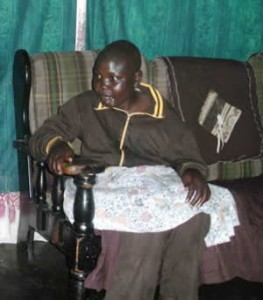Screaming
Friday, July 30th, 2010 by Bev ClarkSCREAMING
Poem by Shailja Patel, Kenya/USA. Performed at the AWID forum by Shailja Patel.
I.
There are too many battles
and too many wounds
and I
I can’t take it
I don’t want to know
that Inez Garcia was sentenced
to life imprisonment
for killing the man
who held her down
while two other men raped her
I want to cover my ears and scream
to block out the voices that chant
that Piah Njoki had her eyes
gouged out by her husband
because she did not bear him
a son
I want to be free of the murder
that pounds in my brain
because six hundred women a year
in Delhi alone
are doused in paraffin and burned
burned to death for the crime
of too small a dowry
I want to pretend it won’t happen to me
did you know that a student
at Sussex university
was raped on her
first night in residence
by a man who just walked
just walked
into her room
I am not a part of this bleeding
this scream
I don’t want to challenge argue fight
construct confront negotiate
beg for change
do you hear me
I want to retreat
to a room filled with humans
shut out the night
the fear and pain
hear myself stop
screaming inside
unravel my breathing ask
in a very
low
voice
dare I
claim the right
to a voice
that does not
scream?
II.
so it wasn’t until I learned to fight
I could be sexy
the swing of my hip developed
in pace with my elbow strike
I grew out my hair
as my flesh grew harder
began to wear lipstick
bare my shoulders
as I learned to judge
how fast to strike
and where
groin
eyes
jugular
It wasn’t until
I could walk down a street
knowing I could turn rage into action
that I could strut
down the same street
say with my stride
yes I think I look good too
yes I revel in my body
yes I love the sun on my skin
this body is mine
the better I learn to defend it
the better I flaunt it
from sheer joy
III.
for the truth of experience
Is in the body
when I am a fighter
my body is weapon
when I am a lover
my body is food
now my body
is paintbrush
story
truth illusion
sing through my limbs
like the shock
of cold water
breathe me clear
breathe me free
breathe me home
Read more at www.shailja.com Shailja Patel’s book, Migritude, comes out from Kaya Press in September 2010
http://kaya.com/books/28










